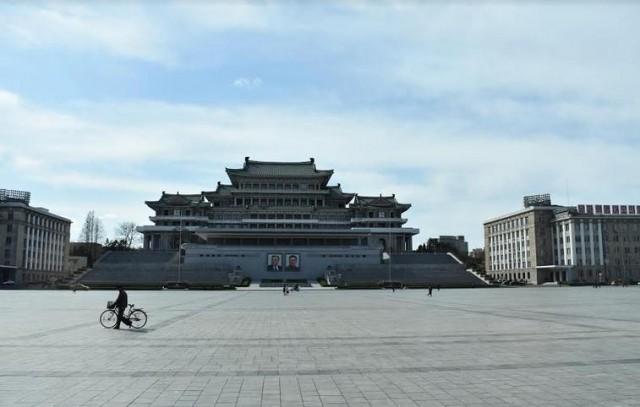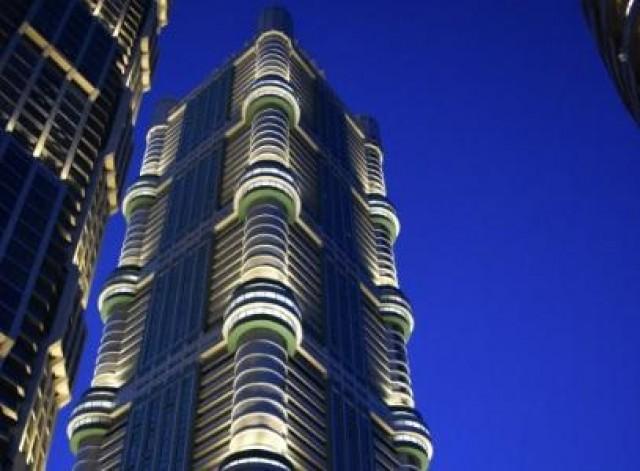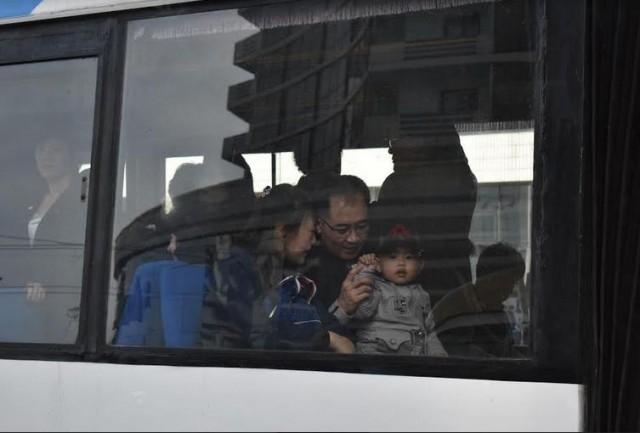Four things I learned in North Korea
Over the past year or so, had the opportunity to travel to more than a dozen nations across four continents, with the privilege of speaking at the world’s leading universities, including at Harvard, Stanford, and Columbia.
Some of the engagements came with the opportunity of meeting and exchanging views with heads of state and senior officials, while others were in prestigious think tanks and research institutions in Europe, America and Asia, where I had the chance to meet leading social scientists and scholars.
As bewilderingly enriching as these experiences may have been, my recent visit to the Democratic People’s Republic of Korea (DPRK), better known as North Korea, was of a whole different order of magnitude. To most of us from the outside, it’s a Hermit Kingdom ruled by the Kim dynasty—an inscrutable nation beyond our wildest political imaginations.
We have watched a lot of gripping documentaries or read a lot of sensationalist books or even salacious articles describing the supposed exotic and surreal nature of life in the DPRK. The list is long: the cult of personality and totalitarian rule; singular commitment to the “Juche” principle of self-sufficiency; defiance of the West through development of nuclear weapons and long-range ballistic missiles; a military first doctrine, where the bulk of national income goes into building defensive capabilities, among many other things that makes the DPRK supposedly unique.
At least, these are things one sees not only on Western media, but also Asian media outlets. No wonder then, I was prepared to be surprised, primed to witness anything—even if, of course, my mobility in the Hermit Kingdom was limited—beyond the usual. I visited (April 3-7) the DPRK as part of a delegation of Asia-Pacific scholars organized by veteran Indonesian diplomat Dino Djalal. We met and had candid discussions with senior government officials, including Kim Yong Dae, Vice-President of the Presidium of Supreme People's Assembly as well as Vice Minister for Foreign Affairs Ri Gil Song.
Our hope was simple: To get a basic grasp of realities on the ground, no matter how limited our interactions with people in the country, while expressing our support for the revitalized peace process, as North Korean Supreme Leader Kim Jung-un prepares to meet his South Korean counterpart, Moon Jae-in, and, likely, even American President Donald Trump.
The North Korean leader already made a surprise visit to China, where he met President Xi Jinping, while Japanese Prime Minister has also expressed his willingness to meet his counterpart in Pyongyang. In short, everyone wants a piece of the young North Korean leader.
What we tried to do in the trip was to also better understand why the sudden shift in the dynamics of the Korean Peninsula conflict. Why did we go from ‘fire and fury’ last year, with North Korea testing ballistic missiles and (allegedly) hydrogen bombs in quick succession, to suddenly all these summits with world leaders, including the first-ever (if pushed through) with an incumbent American leader? We wanted to understand this fascinating plot twist in the Korean drama.
The following are the five takeaways from my trip:

1. Pyongyang is probably the cleanest, most meticulously curated as well as emptiest capital anywhere in the world. The first thing I noticed upon stepping into the North Korean capital city is the absolute absence of any form of loitering and trash on the streets. And, mind you, our delegation managed to travel extensively across the city during our four-days stay there. I was, in fact, surprised by the level of mobility we enjoyed during our trip, where we were allowed to take countless pictures across different neighborhoods and boulevards in the city.
Their underground metro station – the most underground one can imagine – was also the most beautiful I have ever seen, far outshining even the most well-designed metro and train stations I have seen in places such as Europe. Then you have futuristic-looking buildings, some shaped like a spaceship, which remained me of those I saw on Dragon Ball Z cartoons in my childhood.

Critics are, however, quick to dismiss Pyongyang as a Potemkin village -- a showcase city to impress foreigners – and point out the extreme difficulties faced by the heavily sanctioned nation beyond pockets of prosperity close to the seat of power. Yet, one can’t deny that it still takes tremendous discipline, vision, and state control and mobilization power to create such a large showcase city. And for those who visited Pyongyang a decade or more ago, they were nonetheless impressed by the massive transformation of the cityscape.
2. North Koreans are just like any of us, even if they live under very different and difficult circumstances. They can be extremely kind, hospitable, and friendly, even if you’re a foreigner. Among my favorite experiences during my stay was meeting urbane, articulate and cordial professors from Kim Il Sung University, an elite institution where the country’s best and brightest are educated. The other was when we noticed a young family sitting in the bus, with the little boy raising his hands towards us, as I pointed out my camera and waved in greetings.
Was hearteningly beautiful gazing at the loving parents attending to their young child, as the father gently anchored his son’s tiny hands raised with shy eagerness in innocent gesture of friendship; his eyes greeting us in wonderment and surprise, earnestly mirroring the angelic soul that reminds us all of our shared humanity beyond all artificial borders and divisive politics — indeed, a rare glimpse, albeit in fleeting moments, into a life of abiding hope and unwavering tenderness even under most difficult circumstances imaginable.

3. North Korea is back to negotiating table from a position of strength. As they made it clear during some of our exchanges, the revival in the peace process is the result of the “bold and courageous” decision of Kim Jung-un to sue for peace. They seem highly dismissive of the remarkable efforts of South Korean President Moon Jae-in, among others, to resuscitate the path to denuclearization and reunification on the Peninsula.
North Koreans maintain that they are negotiating as a “full-fledged strategic state”, which, to me, meant a full member of the exclusive club of nuclear powers. In short, they are back to the negotiations, but as equal peers of great powers, not a besieged subordinate. For them, they are fully in control of their national destiny.
4. North Korea won’t give up its nuclear weapons unless there is a final peace agreement, which guarantees the regime’s survival. Sanctions don’t seem to threaten the regime, nor force an alteration in their national security doctrine. Yet, they seem to be strong enough to undermine the regime’s hope for economic modernization after decades of isolation. North Korean leader Kim Jung-un raised the stakes weeks earlier when he discussed the prospect of “denuclearization” in the Peninsula. But I doubt what he meant by that was giving up his country’s nuclear weapons as part of negotiations anytime soon. What is more likely is a step-by-step, reciprocal negotiation process, whereby North Korea ceases provocative nuclear and ballistic missile tests and opens up its facilities to inspection in exchange for a freeze on additional sanctions, and their gradual reversal overtime.
The ultimate goal should be the negotiation of a final peace agreement that will replace the fragile 1953 Armistice, essentially a ceasefire agreement that brought an end to direct armed conflict seven decades ago, but failed to end the war per se. Only then can both sides talk about the prospect of full de-nuclearization on the Peninsula. Yet, this will require high levels of patience, expertise, and diplomatic commitment from all concerned parties, including the Donald Trump administration, which is at the center of the equation.
Richard Heydarian is GMA Resident Political Analyst, and has taught political science at Ateneo De Manila University and De La Salle University.




